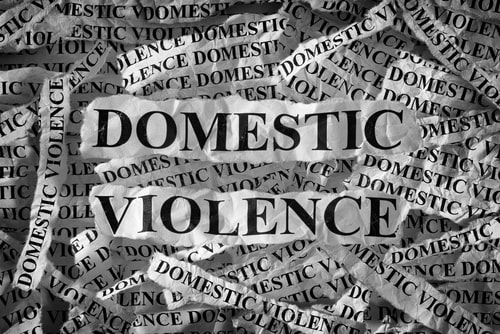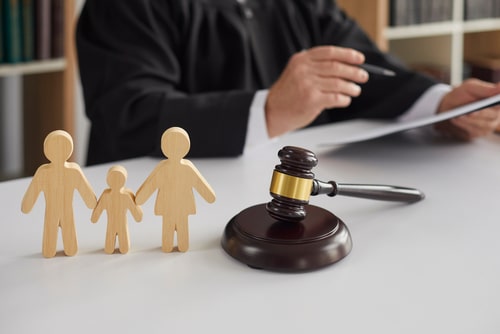Recent Blog Posts
How Will My Divorce Impact My Business?
 Besides child custody, the division of the marital estate in a divorce is the most potentially contentious issue couples must address. Although Wisconsin is a community property state – meaning assets and property are divided 50/50 – there are factors that can make this division complex. One of those factors is if one or both spouses own a business. Determining the actual value of a business is critical to ensure that asset division is fair for both spouses, and this is why it is crucial to have a skilled Wisconsin divorce lawyer advocating for you.
Besides child custody, the division of the marital estate in a divorce is the most potentially contentious issue couples must address. Although Wisconsin is a community property state – meaning assets and property are divided 50/50 – there are factors that can make this division complex. One of those factors is if one or both spouses own a business. Determining the actual value of a business is critical to ensure that asset division is fair for both spouses, and this is why it is crucial to have a skilled Wisconsin divorce lawyer advocating for you.
The following are the key factors that should be considered when determining a business’s worth.
Methods of Valuating
The choice of valuation methodology is crucial and can significantly impact the outcome. There are several approaches, including the income approach, asset approach, and market approach:
What Is the Difference Between a Custody Case and a Complex Custody Case?

Child custody cases can be difficult enough to work through, but when there are complex issues involved, these cases become even more emotionally and legally challenging. This is why having a skilled Wisconsin family law attorney advocating for your parental rights and ensuring your child’s best interests are protected is crucial. The following are some issues that can turn a custody case into a complex one.
Child's Best Interests
The uppermost consideration in any child custody case is the best interests of the child or children involved. Courts prioritize the child's physical, emotional, and psychological well-being above all else. Family law judges will evaluate various factors to decide what custody arrangement is in the child's best interests. These factors may include the child's age, health, educational needs, emotional attachments to each parent, and each parent’s ability to provide a stable, nurturing, and loving environment.
Is Your Divorce Attorney Aggressive Enough?

The most important decision a person makes regarding divorce is the decision itself. But once that decision is made, hiring the right attorney is the second most important decision. Do an online search for a Wisconsin divorce lawyer, and you will get pages of options. Many people wonder if the attorney they hire will be aggressive enough to ensure their best interests will be protected. The level of aggressiveness your attorney exhibits can significantly impact the outcome of a divorce case. Still, it is important to understand what "aggressiveness" means regarding legal representation and whether it is the right approach for your situation. When meeting with different attorneys for your case, the following are some factors to consider.
Communication Style
Effective communication is a critical part of how an attorney approaches their role. An attorney should be assertive in advocating for their client’s rights and interests, but they should also be professional and respectful when dealing with the opposing party and their attorney. Aggressiveness should not translate into hostility or unprofessional behavior.
The Importance of Having a Divorce Lawyer Representing You
 Divorce is a complex legal process that involves emotional, financial, and legal considerations. Despite how complicated it can become, some people believe they do not need a Wisconsin divorce lawyer representing them; instead, they choose to go the "do-it-yourself" route. The following are some of the reasons why it is important to have an attorney advocating for you.
Divorce is a complex legal process that involves emotional, financial, and legal considerations. Despite how complicated it can become, some people believe they do not need a Wisconsin divorce lawyer representing them; instead, they choose to go the "do-it-yourself" route. The following are some of the reasons why it is important to have an attorney advocating for you.
Navigating Complex Laws
Divorce laws can be intricate and vary from one jurisdiction to another. A divorce lawyer possesses in-depth knowledge of the legal intricacies and procedures related to Wisconsin family law. They can help you understand your rights, responsibilities, and the legal implications of every decision you make throughout the process.
Ensuring Fair Treatment
A divorce lawyer is your advocate, working diligently to protect your rights and interests. They can help ensure that you receive a fair share of marital assets, that child custody arrangements are just, and that you are not subjected to unfair financial burdens, such as excessive spousal support or child support payments.
Understanding Wisconsin Child Custody Options
 While the overall divorce process can be emotionally draining, those involving child custody can be especially stressful. Parents need to understand that once the issue is resolved and the court has made its decision, they will now have to co-parent together, and any residual feelings left by a bitter custody battle can get in the way of that, making a significant impact on their child’s life.
While the overall divorce process can be emotionally draining, those involving child custody can be especially stressful. Parents need to understand that once the issue is resolved and the court has made its decision, they will now have to co-parent together, and any residual feelings left by a bitter custody battle can get in the way of that, making a significant impact on their child’s life.
The following are some factors to remember as you navigate through this process. Having a skilled Wisconsin family lawyer advocating for you will ensure your parental rights are protected, and your child's best interests remain top priority.
Prioritizing Your Child's Well-Being
Child custody disputes can often become acrimonious, but it is crucial to remember that the child's well-being should always come first. When the court makes its final decision, it is doing so based on the best interest of the child doctrine. The judge will consider your child’s age, physical and emotional needs, and the ability of each parent to provide a stable and nurturing home.
What Legal Options Are There for Domestic Violence Survivors?
 Every year, the month of October is designated as National Domestic Violence Awareness Month, with the goal of raising awareness about the devastating impact of domestic violence.
Every year, the month of October is designated as National Domestic Violence Awareness Month, with the goal of raising awareness about the devastating impact of domestic violence.
Domestic violence affects millions worldwide. In the United States alone, one in four women and one in nine men have experienced physical violence from an intimate partner. However, it is believed those numbers are actually higher because many cases go unreported due to fear, shame, or lack of awareness of available resources.
It is estimated that nearly 20 people per minute are physically abused by an intimate partner in the United States. This results in approximately 20,000 calls to domestic violence hotlines daily.
One legal option for domestic violence survivors is to obtain a restraining order. The following is a brief overview of this legal option. For more details, contact a Wisconsin family lawyer.
Pursuing an Ex Parte Child Custody Order in Wisconsin
 When it comes to family law issues, child custody disputes can be some of the most emotionally charged and complex cases. When situations come up where a child's immediate safety or well-being is at risk, Wisconsin’s family law system provides a mechanism known as an "ex parte child custody order" that allows a court to take urgent action to protect a child, even without the full participation of both parents. The following is an overview of ex parte child custody orders. For more detailed information on your situation, contact a Wisconsin family lawyer from our firm.
When it comes to family law issues, child custody disputes can be some of the most emotionally charged and complex cases. When situations come up where a child's immediate safety or well-being is at risk, Wisconsin’s family law system provides a mechanism known as an "ex parte child custody order" that allows a court to take urgent action to protect a child, even without the full participation of both parents. The following is an overview of ex parte child custody orders. For more detailed information on your situation, contact a Wisconsin family lawyer from our firm.
What Is an Ex Parte Child Custody Order?
An ex parte child custody order is a court order that is issued without prior notice to or in the presence of one party involved in a custody dispute. "Ex parte" is a Latin term meaning "from one side" or "by one party." Basically, an ex parte order is one where the court makes its decision based on the information and argument presented by the petitioner (the party who is requesting the order) without allowing the respondent (the other party) to present their side to the court.
What Are the Causes of High-Conflict Divorces?
 Even the friendliest of divorces can have some level of contention between the divorcing spouses. These disagreements, however, pale in comparison to the battles that mark a high-conflict divorce. A high-conflict divorce is a distressing and tumultuous process marked by intense disagreements, emotional turmoil, and legal battles between the couple who are trying to end the marriage. This is why it is important to have a Wisconsin divorce lawyer advocating for you and protecting your interests during this process.
Even the friendliest of divorces can have some level of contention between the divorcing spouses. These disagreements, however, pale in comparison to the battles that mark a high-conflict divorce. A high-conflict divorce is a distressing and tumultuous process marked by intense disagreements, emotional turmoil, and legal battles between the couple who are trying to end the marriage. This is why it is important to have a Wisconsin divorce lawyer advocating for you and protecting your interests during this process.
Factors That Can Trigger High-Conflict Battles
When one or both spouses refuse to work together or engage in vindictive behavior, it can create a toxic atmosphere that makes resolution nearly impossible. This lack of willingness to cooperate and negotiate can quickly turn a divorce into a high-conflict situation. Legal battles become the norm rather than the exception. Spouses may hire aggressive attorneys who fuel the conflict rather than promote resolution. These legal battles can drain financial resources and prolong the divorce process.
Can You Date While Going Through a Divorce in Wisconsin?
 For some people who are going through a divorce, the thought of dating and new relationships is the last thing they want to think about. For others, especially when the breakdown of the marriage has been a long time in coming, the thought of meeting new people and dating is exciting. But many people wonder if you should date while your divorce is still pending. A Wisconsin divorce lawyer can help guide you through this and other questions you may have about the divorce process.
For some people who are going through a divorce, the thought of dating and new relationships is the last thing they want to think about. For others, especially when the breakdown of the marriage has been a long time in coming, the thought of meeting new people and dating is exciting. But many people wonder if you should date while your divorce is still pending. A Wisconsin divorce lawyer can help guide you through this and other questions you may have about the divorce process.
The Difficulties Dating May Cause in a Divorce
There are several issues that dating can cause in a divorce, especially one that is already contentious. This is especially true if you have children and there are custody issues that need to be addressed. You can be assured that your spouse’s legal team – and likely your spouse’s friends and family – will be scrutinizing everything you do. This is why you should avoid posting anything on your social media accounts that can be used against you.
The Complexities of High-Asset Divorce
 A high-asset divorce is one where the couple has a million dollars or more in assets. While any divorce can be complicated, high asset divorces face unique challenges due to the often complex nature of the assets and property the couple owns. The high asset divorce process typically takes much longer than a standard divorce, often requiring the assistance of not only a Wisconsin divorce attorney experienced in high net-worth divorces, but also involving a variety of financial professionals, as well.
A high-asset divorce is one where the couple has a million dollars or more in assets. While any divorce can be complicated, high asset divorces face unique challenges due to the often complex nature of the assets and property the couple owns. The high asset divorce process typically takes much longer than a standard divorce, often requiring the assistance of not only a Wisconsin divorce attorney experienced in high net-worth divorces, but also involving a variety of financial professionals, as well.
Asset Valuation and Ownership
Many high-net-worth couples own a diverse range of assets. This can include real estate, financial accounts, stocks, bonds, collections, businesses, and more. In order to obtain an accurate total of the marital estate, the value of each of these assets needs to be determined. While the value of some assets may be simple (i.e., a retirement account), determining the value of other accounts may be more difficult (i.e., business valuation).









